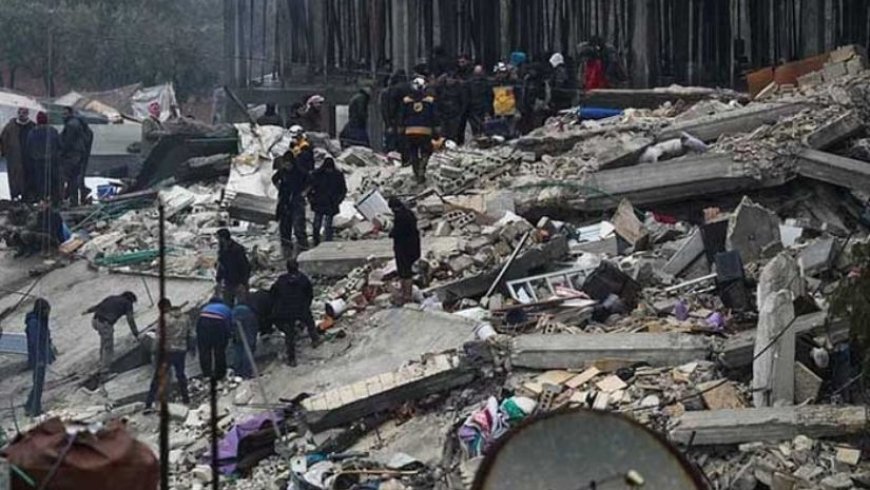Turkey-Syria earthquake kills 4,500
The death toll from the powerful earthquakes in Turkey and Syria continues to rise. According to the latest news, the death toll from the 7.8-magnitude earthquake that struck the two countries on Monday morning (February 6) has exceeded 4,300.

A strong earthquake in Turkey and northern Syria has killed more than 4,300 people. Major rescue operations have been launched in both countries since the earthquake.
An earthquake measuring 7.8 on the Richter scale hit southern Turkey in the early hours of Monday local time while people were sleeping. The powerful earthquake was centered near the southern city of Gaziantep.
Since then there have been more than 20 aftershocks, the strongest of which was a magnitude 6.6.
But another 7.5-magnitude tremor was felt around 1:30 a.m. local time on Monday, which officials identified as another aftershock. They said it was 'not a beating'.
Its origin was the Elbistan district of Kahramanmaras province in southeastern Turkey.
Quoting the country's disaster agency, the BBC reported that after the first earthquake, the death toll in Turkey alone exceeded 2,900 and more than 15,000 were injured.
Neighboring Syria said their death toll exceeded 1,400.
Thousands of buildings have collapsed in both countries. Rescuers are fighting against time to save the lives of people trapped under the rubble of these buildings.
President Recep Tayyip Erdoğan described it as Turkey's worst disaster in 84 years. In 1939, a magnitude 7.8 earthquake in Erzincan, northeastern Turkey, killed more than 30,000 people.
It was the world's strongest earthquake since August 2021, according to US Geological Survey records.
After this terrible disaster, Turkey requested international assistance. So far, 45 countries have offered assistance to Turkey, President Erdoğan said.
Turkey is located in one of the most earthquake prone areas in the world. The 'East Anatolian Fault' is located in this region. This fault extends along the southwest to northwest of Turkey's southeastern border. Seismologists have long warned the 'East Anatolian Fault' in Turkey to be 'very dangerous'.
What's Your Reaction?











































